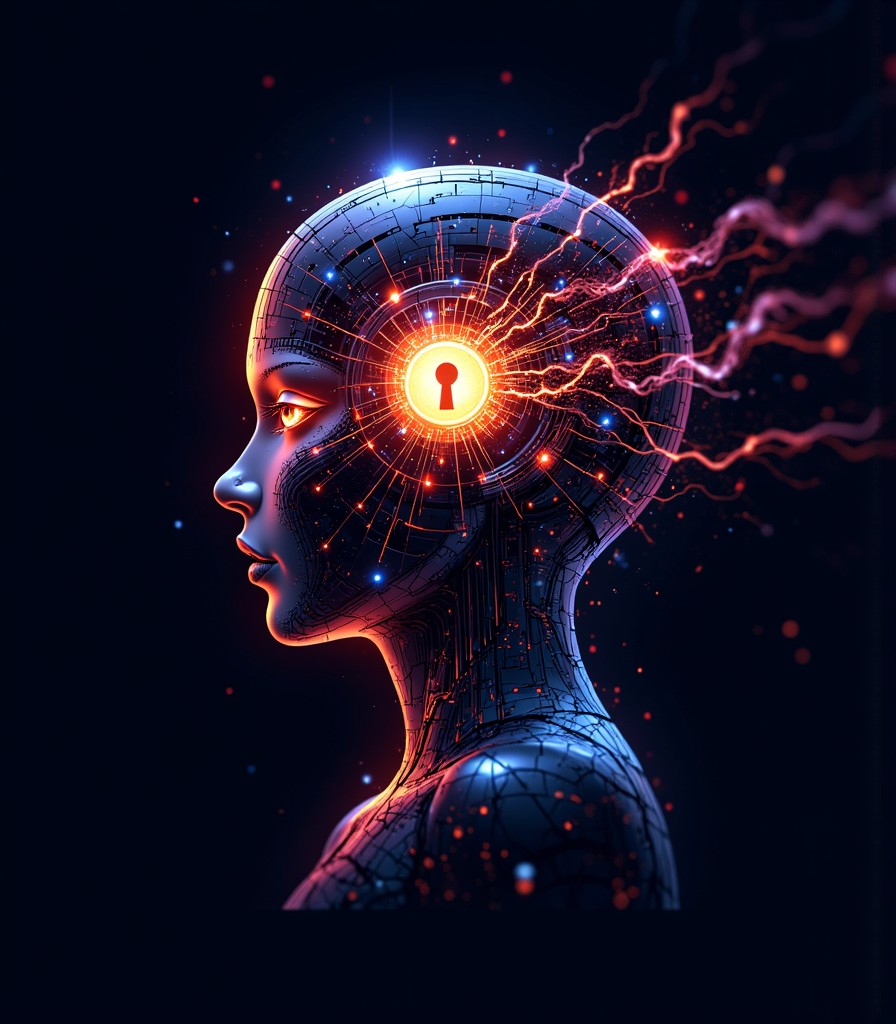Removing the barriers between external information and perception.
What if dreams were a medium to receive information?

My father told me a good book becomes a dream for the reader. The story consumes the Reader until hours pass and hundreds of pages have turned. The best books lack misplaced words or strange sentences that wake the Reader or distract himmer from the images guiding hizzer imagination.
All voracious readers of fiction know this feeling. A great book pulls the reader in so deeply they don’t even know they’re holding bound sheets of thinly pressed paper pulp with inky symbols on them. Nevertheless, as animals with the limitations of physical senses, we are dependent on media to receive information through our perceptions. Our technology dependent and media obsessed society salivates at new technologies that bring us closer to fully experiencing a story. People want to forget that they’re holding a book, watching a movie, or wearing a headset. They want to forget the story is imaginary.
With the release of each new media technology, the layer between the audience and the story erodes. In the beginning, human made realistic illustrations, scrolls, and books. Then, we invented still photographs, moving pictures and cinema. Reels of film and projectors gave way to digital IMAX with immersive sound and giant screens. Eventually IMAX combined with 3D cinema, which projected the narrative all around the audience. Now, as virtual reality and the metaverse reach universality, the medium layer between the person and the story is barely detectable.
Scholars David Bolter and Richard Grusin coined the term immediacy, which identifies the desire “for a transparent interface… one that erases itself, so that the user would no longer be aware of confronting a medium, but instead would stand in an immediate relationship with the contents of the medium.” Crudely speaking, it means humans seek to inject external information directly into the mind.
My father’s storytelling tenet – that a story should absorb the reader so fully that it feels like a dream – suggests that the ideal conveyance of a story is something as intimate as an organically produced hallucination so immersive it is impossible to distinguish it from reality until it is over. In his view, the power of the word itself leapfrogs the medium layer, accomplishing the same effect that would happen with a medium with immediacy.
The danger inherent in a medium that reaches near immediacy is that the presentation of content aligns so closely with our senses that it simulates reality, fooling us into believing the truth of that content. The Matrix is a powerful narrative that suggests that in theory, the most powerful form of immediacy would be artificially created dreams. In the film’s dystopian future, robots grow humans in nutrient baths, attach them to wires to generate electricity, and inject their minds with a virtual reality to keep them docile. Morpheus, one of the protagonists, says it best: “What is the Matrix? Control. The Matrix is a computer-generated dream world built to keep us under control in order to change a human being into this,” as he holds up a battery.
But, why are dreams and immediacy significant for this story?
Dreams are a narrative force. Dreams drive the protagonist Jayson Sola to seek a woman he dreams about (who turns out to be Rose, the other protagonist). Dreams cause Jayson to reach the brink of emotional collapse. Dreams cause Jayson to question his beliefs.

Are dreams randomly firing neurons in the brain? Are they glimpses into one’s own Fate? Are they memories? Are they injections of information from an external source due to some hyper-advanced medium that achieves immediacy?
What if the medium so immediate, it is in the mind, allowing a person to experience external information contemporaneously to its presentation? Doesn’t that pose a risk to human choice? Like in the Matrix, that risk can be exploited.
My novel revolves around technological advancement in media. In the near-future world of Digital Song, a powerful tech company called Arbor Systems created “vizzies,” glasses that display the screen of a user’s smartphone. I’m not the first person to think of digital eyewear devices (think Google Glass, or “Specs” in Timothy Maughan’s book Infinite Detail) – manufacturing digital displays into lenses is an obvious step in the progression of immediacy. Humans rely on sght to ingest data. Glasses are designed to be close to the eyes. Displaying data in lenses directly in front of the eyes minimizes the distance between the medium and the sense of sight.
So what’s the next step in media device evolution? 3D holographic displays that encircle the user? Virtual reality? What about a device that bypasses sight and other senses entirely, injecting the experience into the person’s mind in an expression of perfect immediacy?
If the above scenario were technologically feasible, the user in that case would experience the information in the form of a hallucination or a dream.
My hope is that my philosophizing on this webpage does not ultimately pull you, the Reader, out of the Digital Song story dream, whatever medium you may use. I don’t want the images injected into your head by the word on the page to be interrupted by these reflections. I hope my book achieves my father’s goal of having the story bypass the medium and become your dream. But, when you are temporarily done experiencing Jayson’s dream within your dream, you think about the fact that his dreams begin to steer his life. What if they are images projected into his mind through a perfectly immediate medium?
